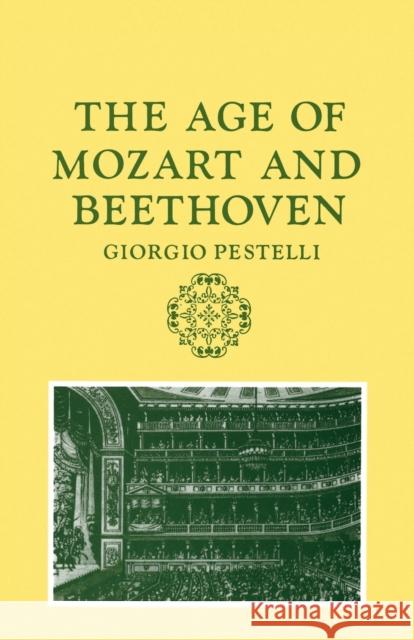The Age of Mozart and Beethoven » książka
The Age of Mozart and Beethoven
ISBN-13: 9780521284790 / Angielski / Miękka / 1984 / 336 str.
Giorgio Pestelli examines one of the crucial periods of musical history, the transition from the middle of the eighteenth century to the era of Beethoven. This was a time of great cultural, technical and social changes. The free professional composer, in direct contact with the wide musical public, replaced the dependent court musician. Instrumental music became the centre of new developments, and sonata form, the cornerstone of nineteenth-century musical architecture, dominated its language. With the decrease in private patronage came the birth of the public concert; there was a vast increase in music publishing, and important developments were made in instrumental techniques, the dominant feature being the rise of the piano. Standing out from this common background are three major figures: Haydn, Mozart and Beethoven, whose specific characteristics are discussed in detail, along with their links with many other musicians. Dr Pestelli also emphasizes general lines of development: the galant style, the passion for antiquity and the curiosity for the exotic, the debate over 'literary' opera, the Sturm and Drang movement, the influence of the French Revolution and the Restoration, and the origins of romanticism. The importance of the book is that the music is viewed against the background of social, political, philosophical and cultural trends of the time, rather than relying on detailed analyses of specific works.The series Storia della Musica is published in twelve volumes under the auspices of the Societa Italiana di Musicologia. The original Italian edition is designed to remedy the dearth of a satisfactory comprehensive history of music in Italian, but the many fresh insights itcontains make it of interest and significance to a far wider readership. The four volumes to be published in translation by Cambridge University Press are made available for the first time to the English-speaking student. Each discusses the music and musicians of a separa











